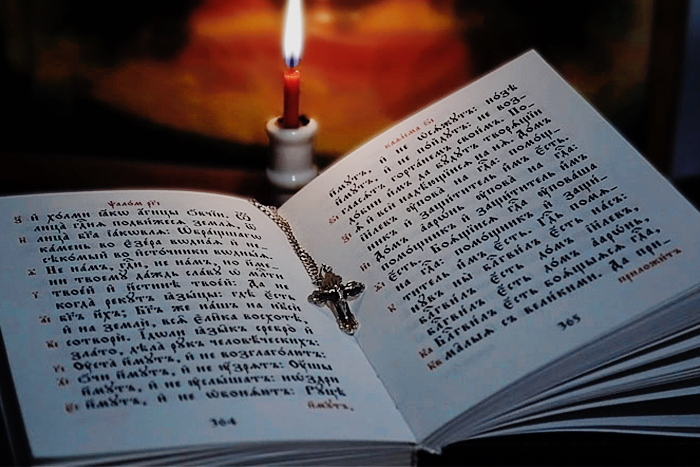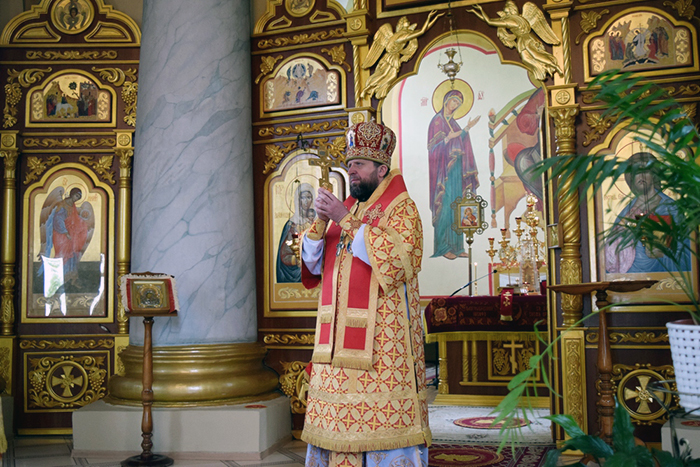
“Line all your life’s activities with frequent prayers as if with timber joints and thus protect your life in every way”, St. John Chrysostom says.
You may often come across a request to join a “prayer by agreement” online and in real life. Issues that you may be called on to pray for may range from serious health and life related issues to less acute everyday problems.
What does “prayer by agreement” look like? Several people agree to read a short prayer at the same time, adding it to their usual prayer rule, or an akathist or the reading of the Psalms. The prayer itself is supplemented with the shared petition. The prayer can also be read independently, without any other additions or attachments, usually at a certain time – noon, 10 o’clock in the evening, etc. Sometimes, depending on the situation and prayerful zeal of the participants, the prayer is read several times a day.
It is important to receive a priest’s blessing before reading this prayer, and to evaluate one’s own strengths and moods soberly: it is often the case that a person engages in the prayer but eventually misses the time or fails to keep the promise altogether.
The text of the prayer is as follows:
Lord Jesus Christ, Son of God, Thou didst say with Thy most pure lips, Verily I say unto you, that if two of you shall agree on earth as touching any thing that they shall ask, it shall be done for them of my Father which is in heaven. For where two or three are gathered together in my name, there am I in the midst of them. Thy words are inviolable, O Lord, Thy mercy is unequaled, and Thy love for mankind has no end. Therefore we pray to Thee: Give us, Thy servants, (here we said our names), who have agreed to ask of Thee (help Thy creature) for the fulfillment of our request. But let it not be as we desire, but as Thou desirest, O Lord; may Thy will be done unto the ages of ages. Amen.
The text contains the Gospel directive (Matthew 18:19-20) which is the basis of the Orthodox practice of “prayer by agreement”. This is one of the ways to reinforce prayer in any difficult situation, such as illness, misfortunes of life, problems in the family or community, or an inability to decide what to do.
The text of the prayer can be modified at will, as long as the prayer flows out of loving hearts and shows adamant confidence that the Lord hears it and will do what is best for the praying person or the person being prayed for.
This prayer was used by Saint John of Kronstadt and one of the Moscow clerics, Father Konstantin Rovinsky. According to the latter, he witnessed numerous and miraculous instances when this prayer was effective: patients on their death bed would recover; those who had lost their eyesight or their ability to walk would regain them; persistent hateful attacks would stop, etc.
Saint John of Kronstadt also testifies to this. He writes in his book “My Life in Christ”, “I have seen for myself how quickly God hears the prayers of two or three people praying in unison.”
When praying by agreement, the Rev. Konstantin Rovinsky would read it four times a day (morning, afternoon, evening, and night) until, by the grace of the Lord, the prayer was answered.
Of course, we all trust in the mercy of God. However, even when you don’t get what you ask for, that’s fine because if you have received something, it’s from God, and if you haven’t received anything, it’s from God, too. This is exactly what the closing words of the prayer say, “But let it not be as we desire, but as Thou desirest, O Lord; may Thy will be done unto the ages of ages.”
And if we pay proper attention, it becomes clear that this is a prayer aimed at aligning our will and our life with God’s will and life. It is His will that we love each other, for His life in us is love. Where people are united in His name, they look at the same thing from various sides but in the same direction and ask for help to live in harmony on this path. The mystical fullness of this experience, of the totality of the Church, is possible only in the fellowship of love, even with those who pay for trust with treachery.



